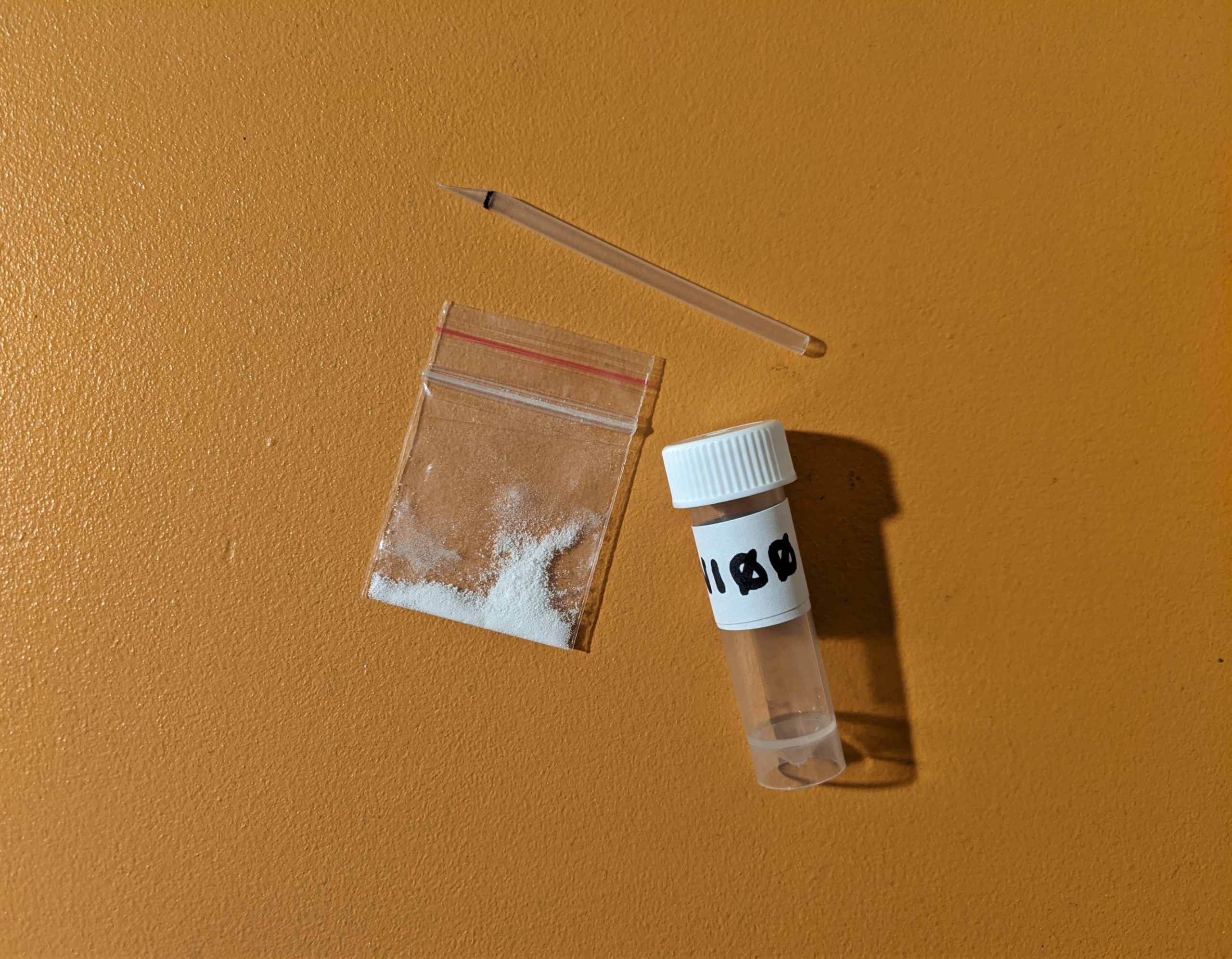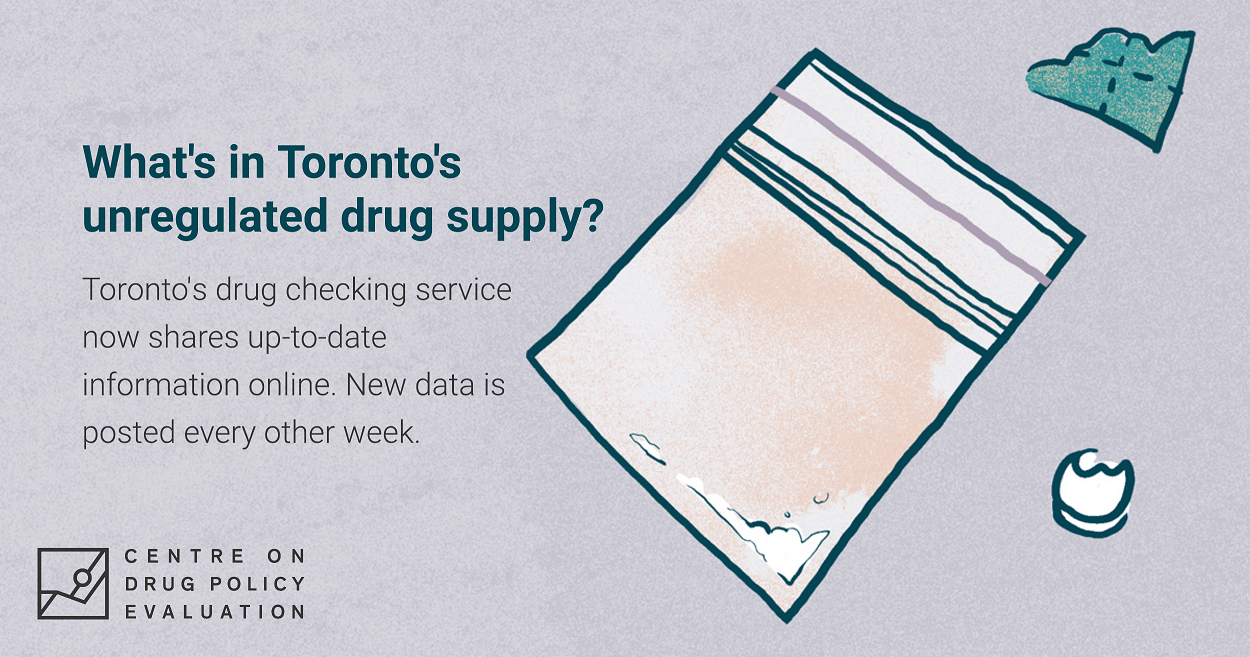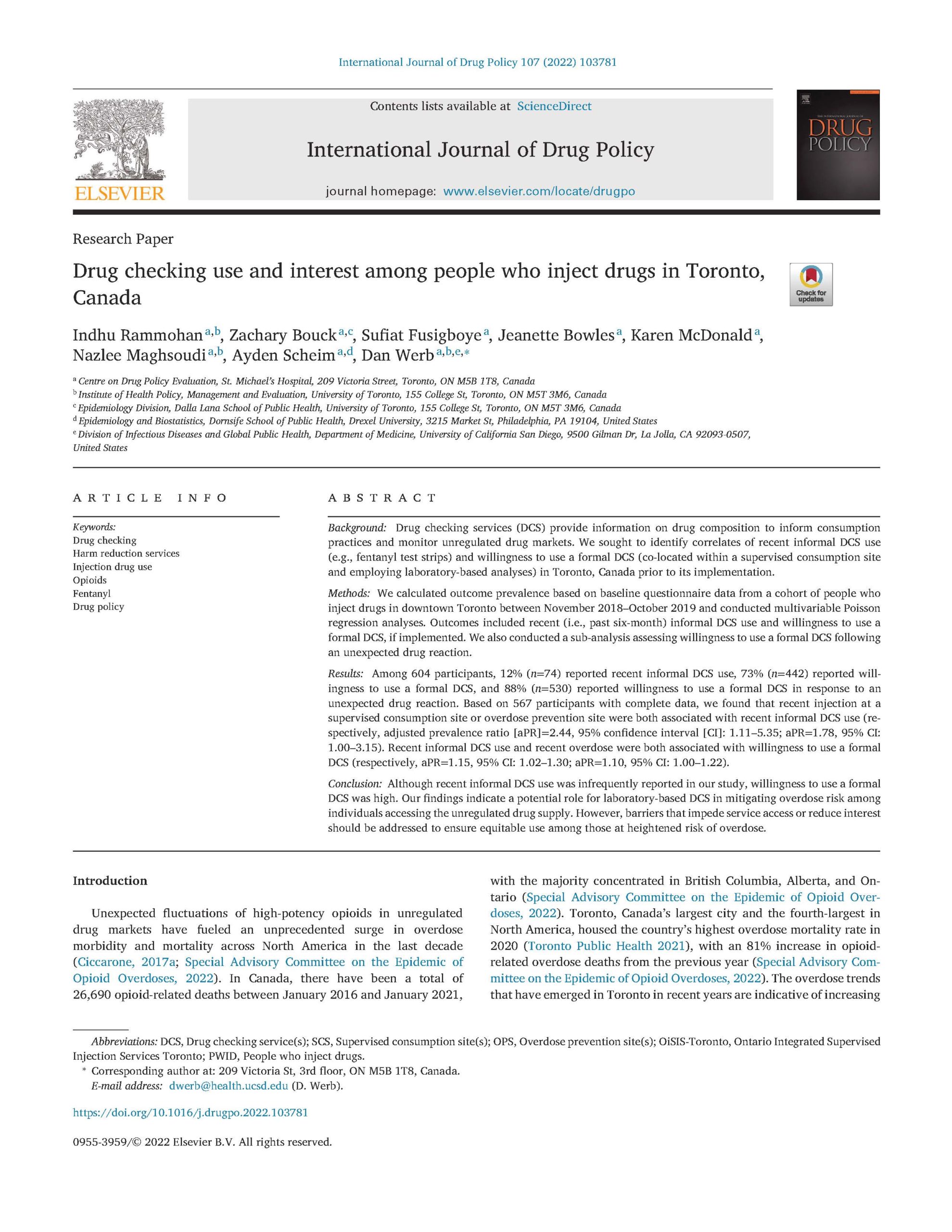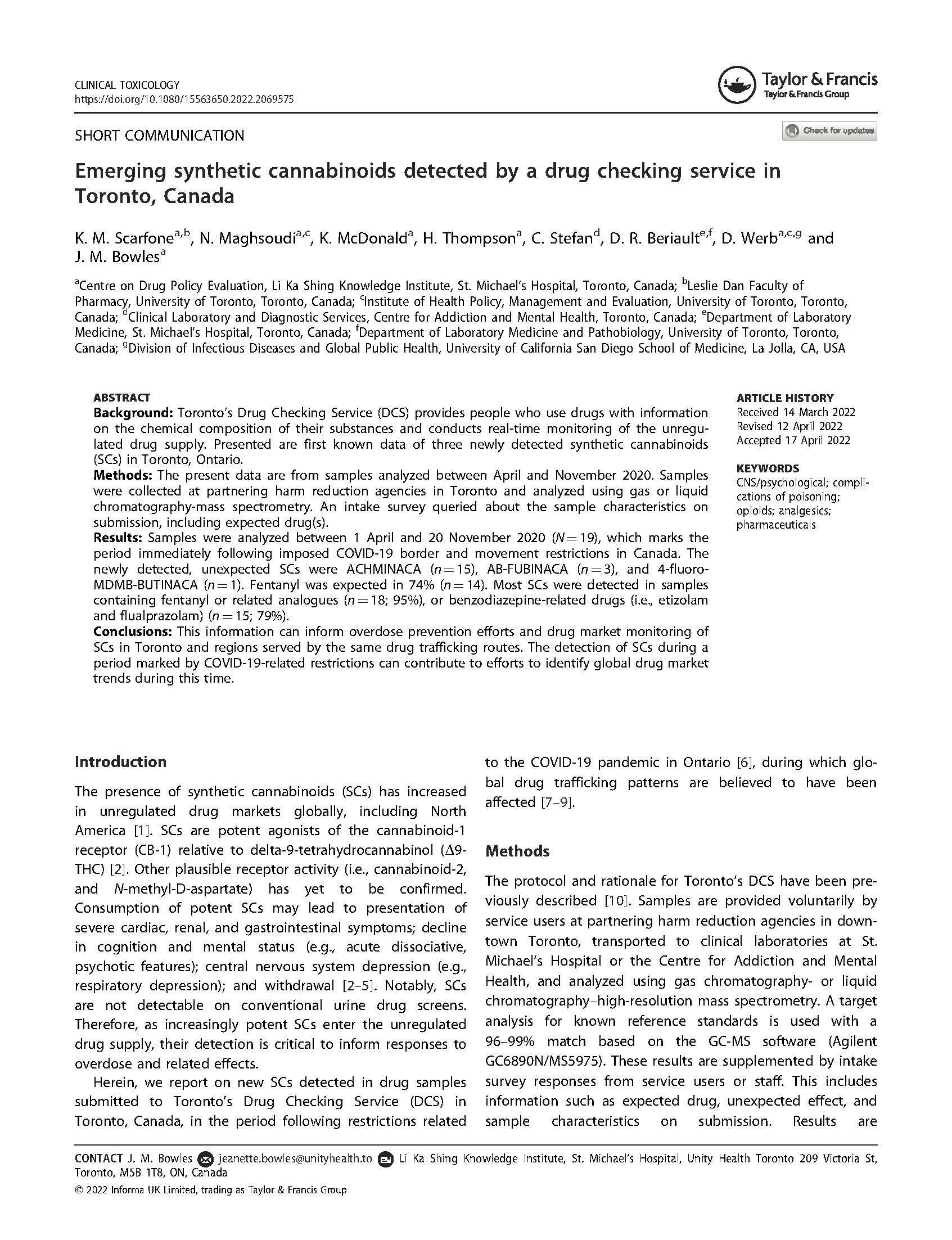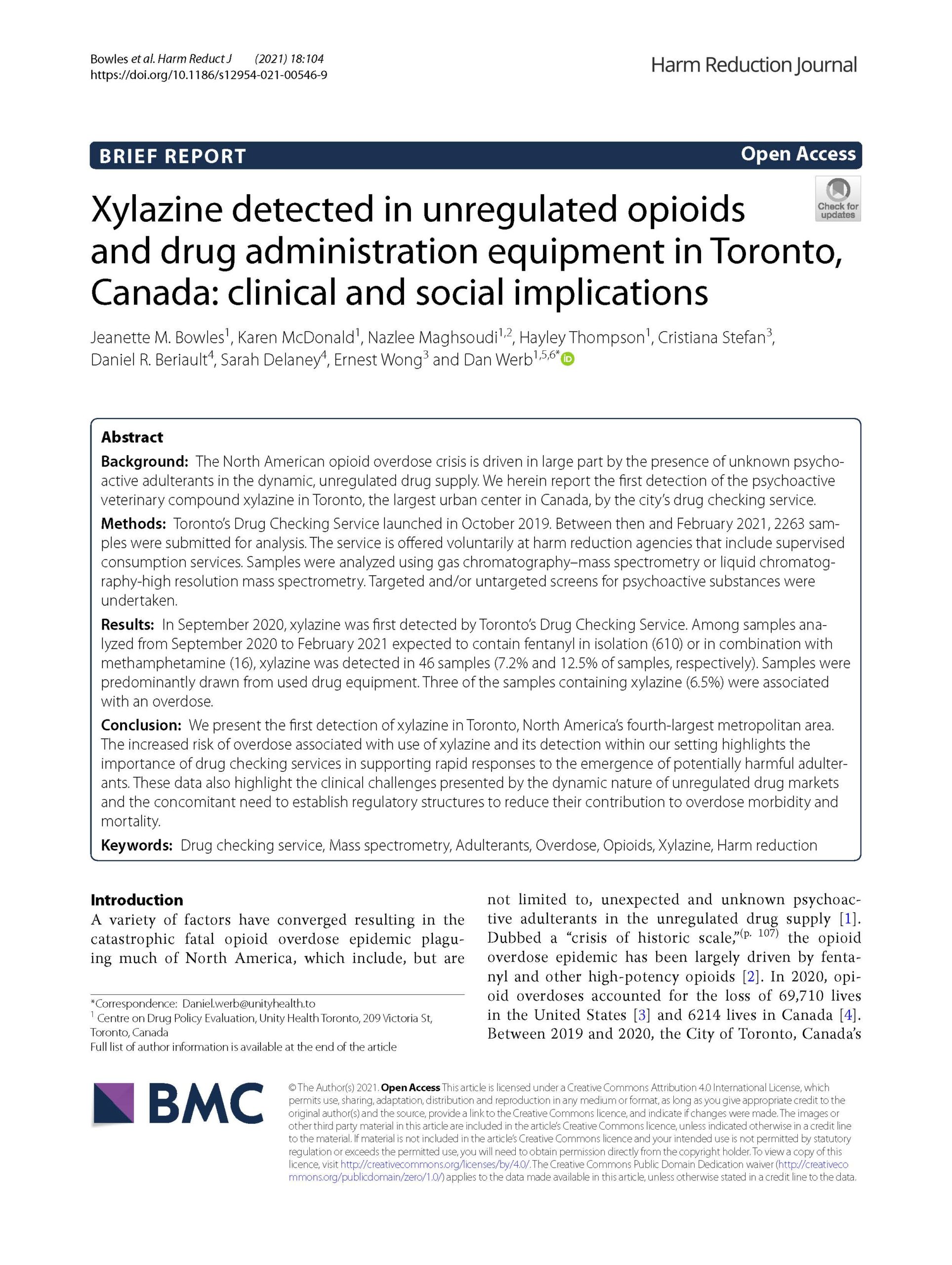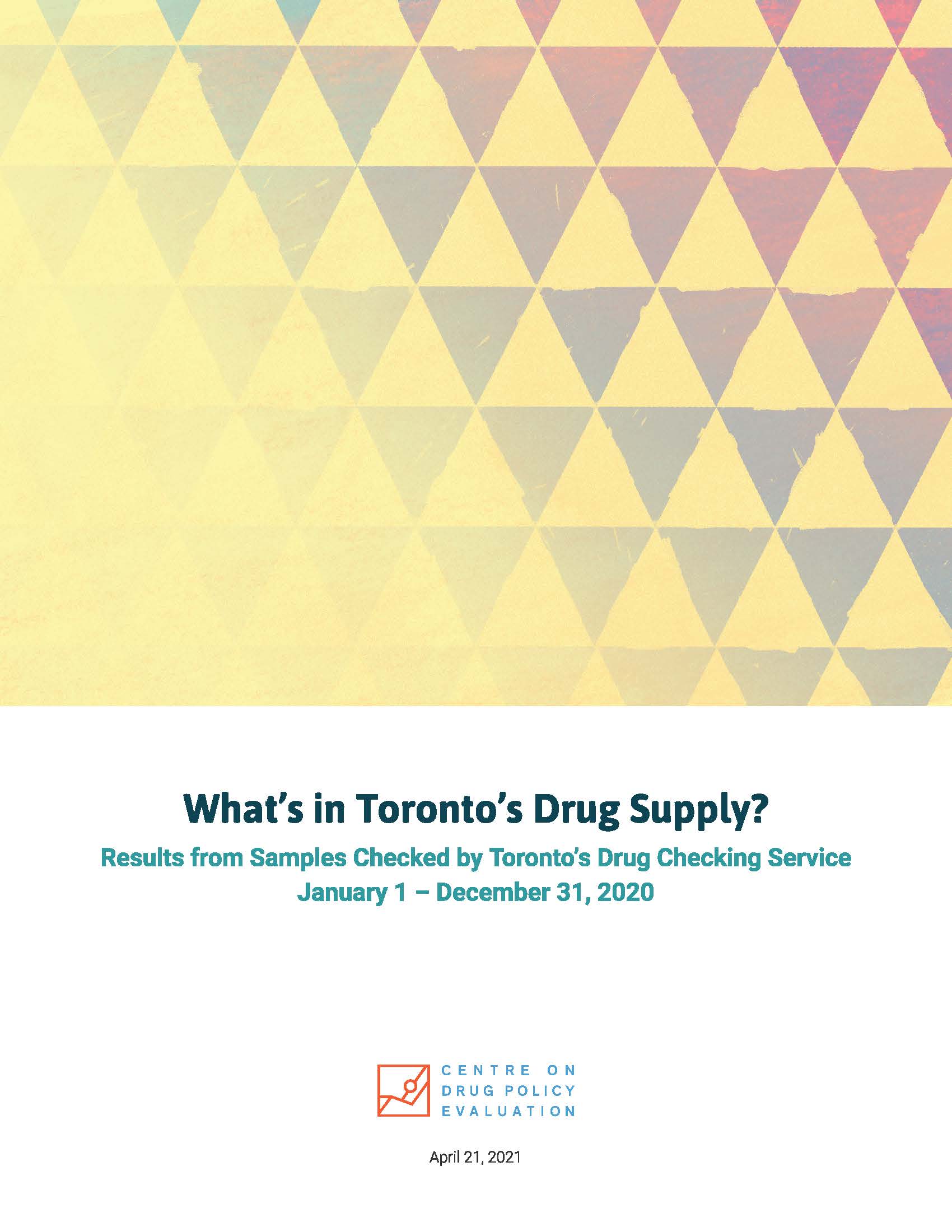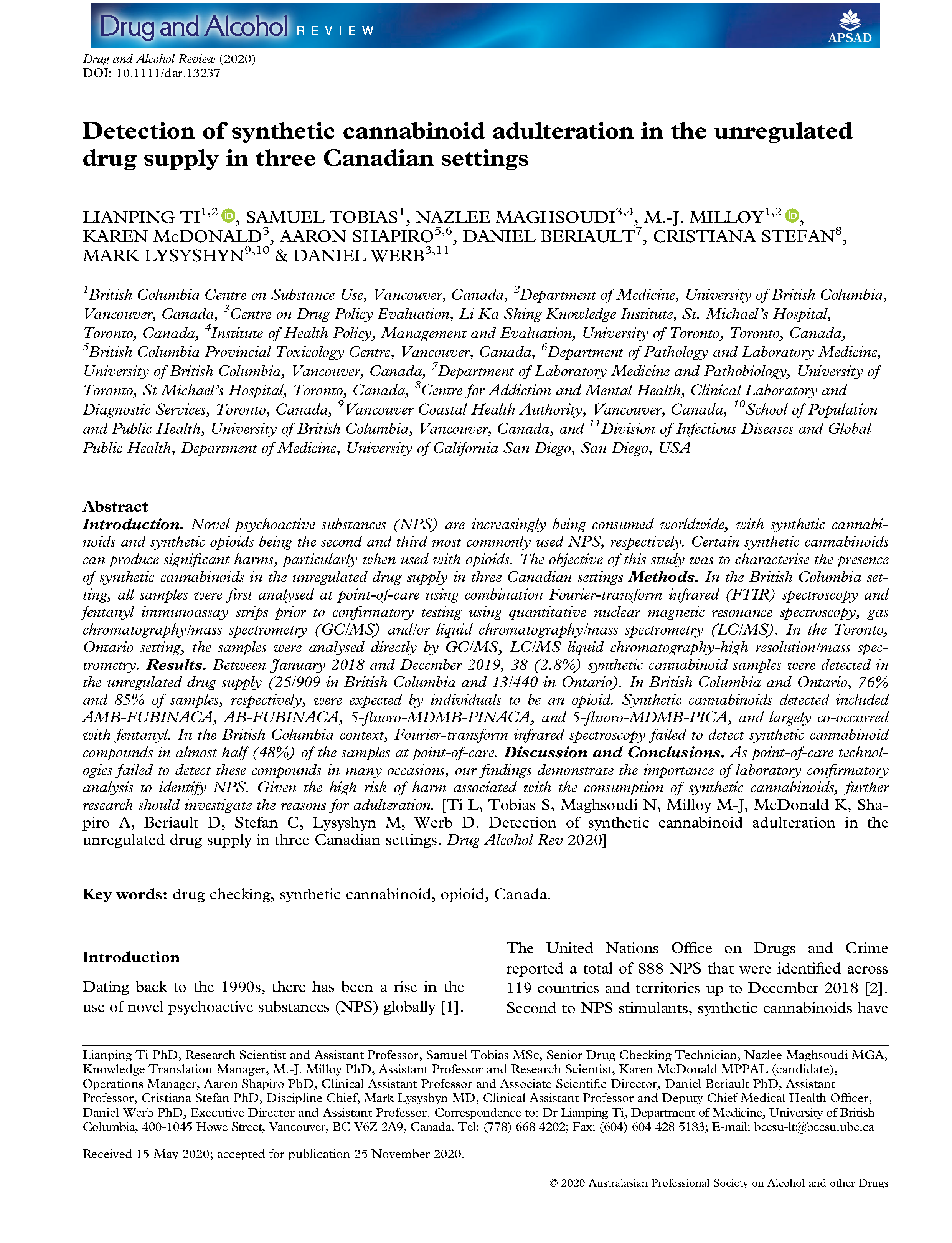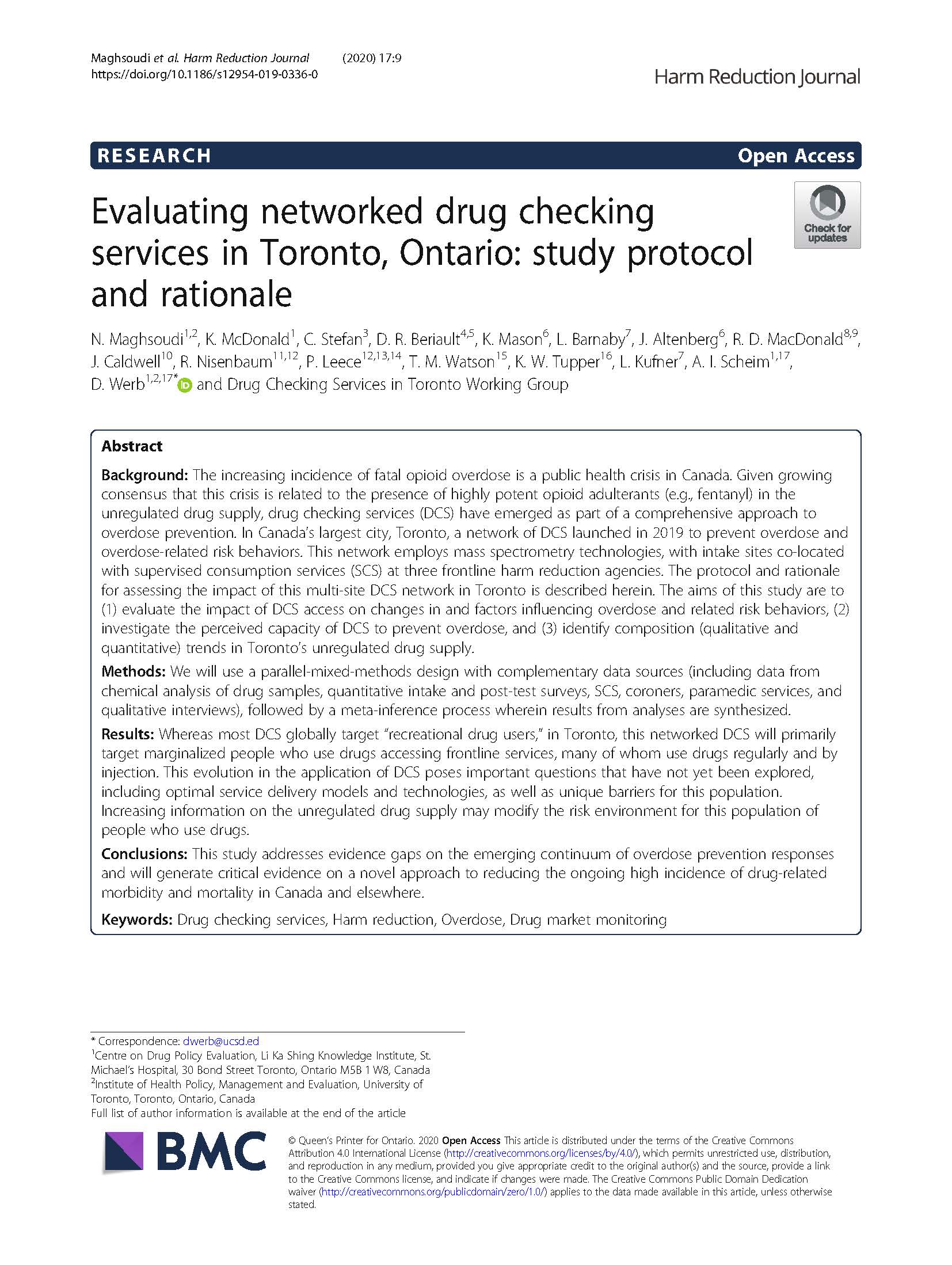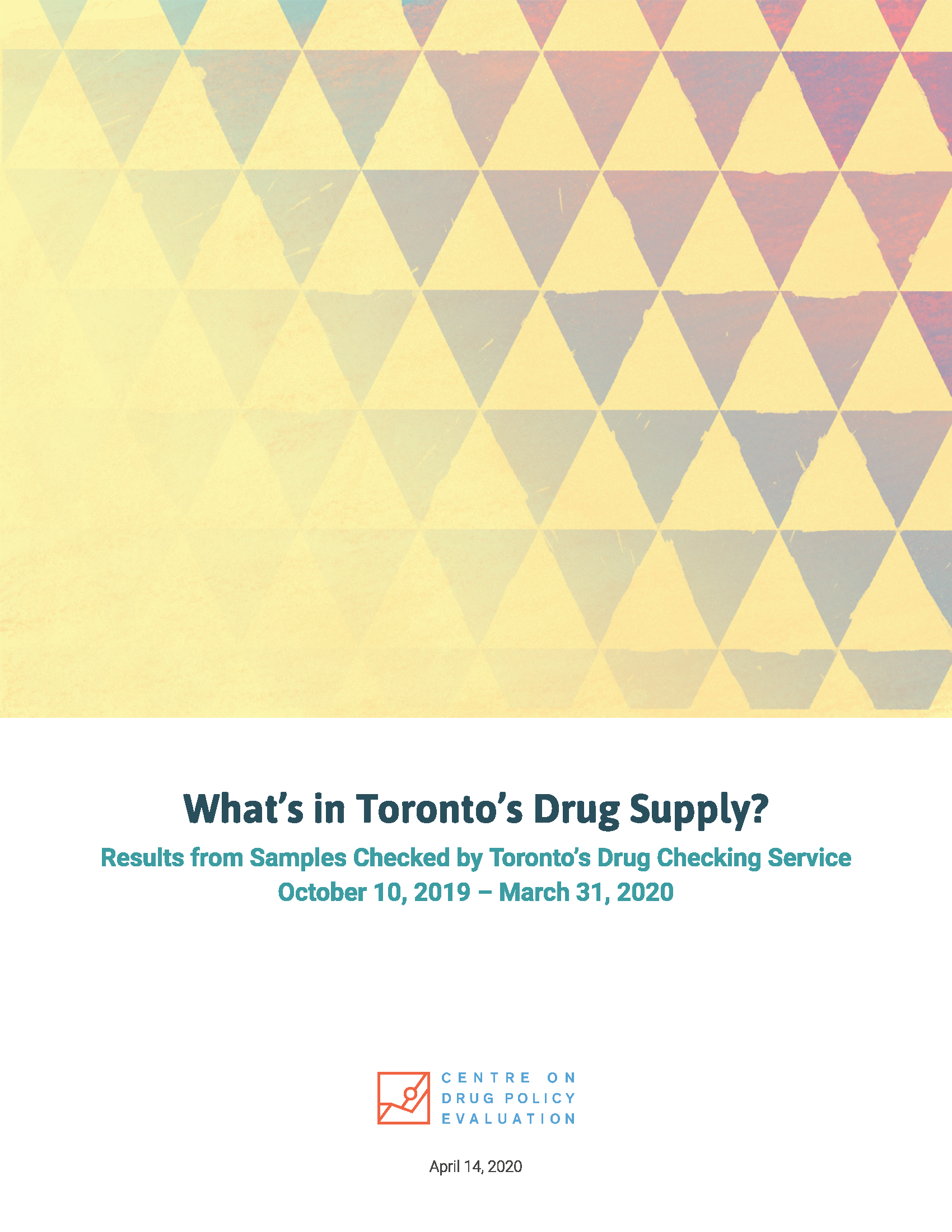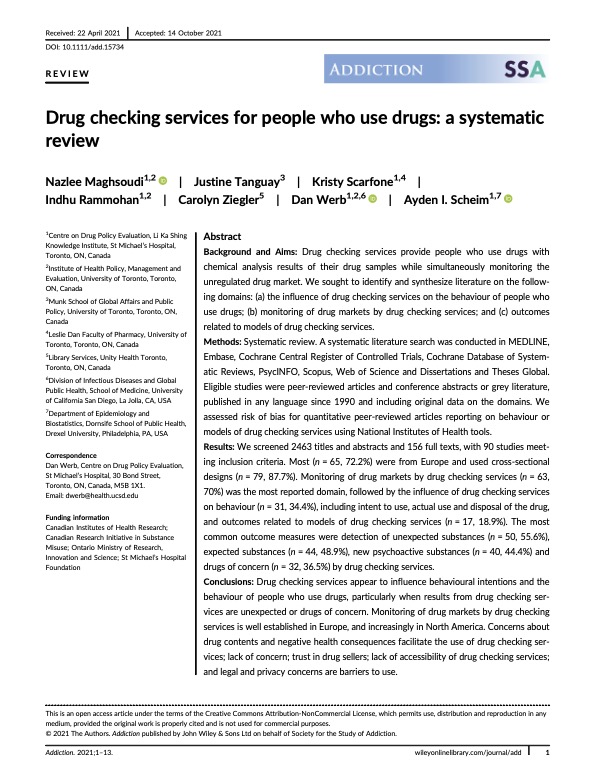Diverse psychotropic substances detected in drug and drug administration equipment samples submitted to drug checking services in Toronto, Ontario, Canada, October 2019–April 2020
Abstract
Background: The overdose crisis has generated innovative harm reduction and drug market monitoring strategies. In Toronto, Ontario, Canada, a multi-site drug checking service (DCS) pilot project was launched in October 2019. The project provides people who use drugs with information on the chemical composition of their substances, thereby increasing their capacity to make more informed decisions about their drug use and avoid overdose. DCS also provides real-time market monitoring to identify trends in the unregulated drug supply.
Methods: Sample data were obtained through analyses of drug and used drug administration equipment samples submitted anonymously and free of charge to DCS in downtown Toronto from October 10, 2019, to April 9, 2020, representing the first six months of DCS implementation. Analyses were conducted in clinical laboratories using liquid chromatography- and/or gas chromatography-mass spectrometry (LC–MS, GC–MS) techniques.
Results: Overall, 555 samples were submitted, with 49% (271) of samples that were found to contain high-potency opioids, of which 87% (235) also contained stimulants. Benzodiazepine-type drugs were found in 21% (116) of all samples, and synthetic cannabinoids in 1% (7) of all samples. Negative effects (including overdose, adverse health events, and extreme sedation) were reported for 11% (59) of samples submitted for analysis.
Conclusions: Toronto’s DCS identified a range of high-potency opioids with stimulants, benzodiazepine-type drugs, and a synthetic cannabinoid, AMB-FUBINACA. This information can inform a range of evidence-informed overdose prevention efforts.
View the full article here.
